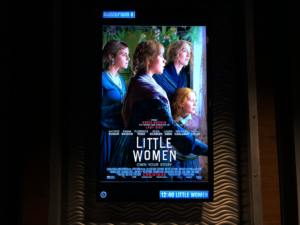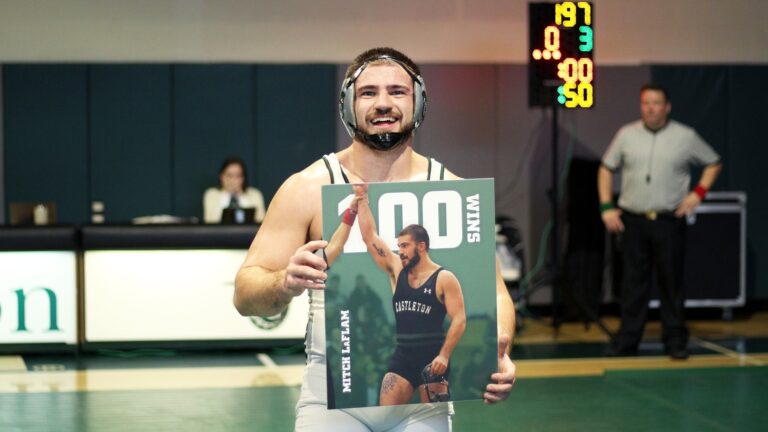‘Little Women’ stirs controversy

Between 1917 and 1994 there were five film adaptations of Lousia May Alcott’s semi-autobiographical critically acclaimed novel, “Little Women,” which follows the lives of the March sisters.
Now, there is now a sixth adaptation, which garnered about $16.5 million in domestic ticket sales on its opening weekend, according to the New York Times reports. But the widespread embrace of this adaptation led to public discourse about its perceived Oscar snub and about the ways that femininity and queerness may have looked like over a century ago.
Director Greta Gerwig made her directorial debut with the film “Lady Bird” in 2017, which tells a story of girlhood and adolescence that landed a 99% fresh on Rotten Tomatoes. This established Gerwig as someone who could intimately reach into the coming-of-age genre and make it feel fresh and valuable.
However, Gerwig had not yet created “Lady Bird” when she met with Sony executives saying she should be the one to bring Alcott’s beloved story to life on screen.
“I went in, and I said, ‘This movie is about art and women and money, and it’s about the impossibility of all three. It’s about: how do you become an adult, and keep the part of you that was a brave girl alive?’” she recalls in an interview with Total Film.
Gerwig, in a Vanity Fair interview, said initially she had only been asked onto the project to write the script, since she had no directing experience. It wasn’t until after “Lady Bird” had come onto the scene that she was asked to direct the film. This leads some viewers to attribute much of the feistiness and what may feel to be very modern scenes and interactions as something that born out of Gerwig’s own passion.
But Gerwig said it was Alcott who created these female characters to be so deeply resonant.
During an interview with Time, Gerwig says “ …it comes across as having just been written by me, when in fact every word is either from the book or Alcott’s journals, letters or another book she’s written. If you strip away this pre-Victorian morality, what you have is ambitious, passionate, angry, sexual, interesting women who don’t fit into the boxes the world has given them.”
Perhaps the reason “Little Women” is back in the cinematic world is because Alcott spoke truth to the realities of living within one’s means, to the struggles of adolescence, and the barriers that have been placed upon girls and women since long before Gerwig first put her pen to page.
Today there is more action in the intersectional feminist community than Alcott likely could have ever imagined, but the battle is very much not over. While Alcott was unable to write a novel that allowed her main character to remain unmarried (like she herself did) without social backlash, today there are creators all over the world who are being told that they cannot create works where they exhibit certain aspects of femininity due to fear that they will disrupt the status quo that is enforced within the film industry.
However, that status quo is now being challenged, as more people join the discussion of how mainstream film lacks critical representation of marginalized people not only on screen, but behind the camera. Media and Communication professor Sam Davis-Boyd spoke about “Little Women” receiving a lot of attention due to people believing that Gerwig was snubbed by the Academy of Motion Picture Arts and Sciences by not being nominated for best director in the current Oscar season.
“I’m not seeing a lot of discourse about all the other females, especially women of color, directors who are being snubbed. We’re seeing the hashtag “#OscarsSoWhite” everywhere, and even when we’re talking about people who have been snubbed, we’re talking about white women,” she said.
What it appears to come down to ultimately, is representation. The story of “Little Women” represents many different and valid perspectives on girlhood and womanhood, and the variety that exists within the characters. This adaption embraces more androgynous aspects of both costume design and character traits, which allowed for LGBTQ+ audiences to imagine what queerness may have looked like 150 years ago when there was far less opportunity for individuals to embrace those aspects of themselves.
“That’s the whole thing with representation. We want to see stories about ourselves and our lives represented on screen, and when we don’t, who do we look to to see ourselves?” Davis-Boyd questions.
While there is undoubtedly a problem within the film industry of not giving enough attention to marginalized voices, there is a responsibility placed onto audiences to view the films made by those creators. While everyone is entitled to their opinion on any creative work, it is impossible to form those opinions without first giving a chance to view those works.
So what films does Davis-Boyd recommend the Castleton community take a chance on viewing? “The Farewell” directed by Lulu Wang, “Atlantics” directed by Mati Diop, and “Queen and Slim” directed by Melina Matsoukas.







